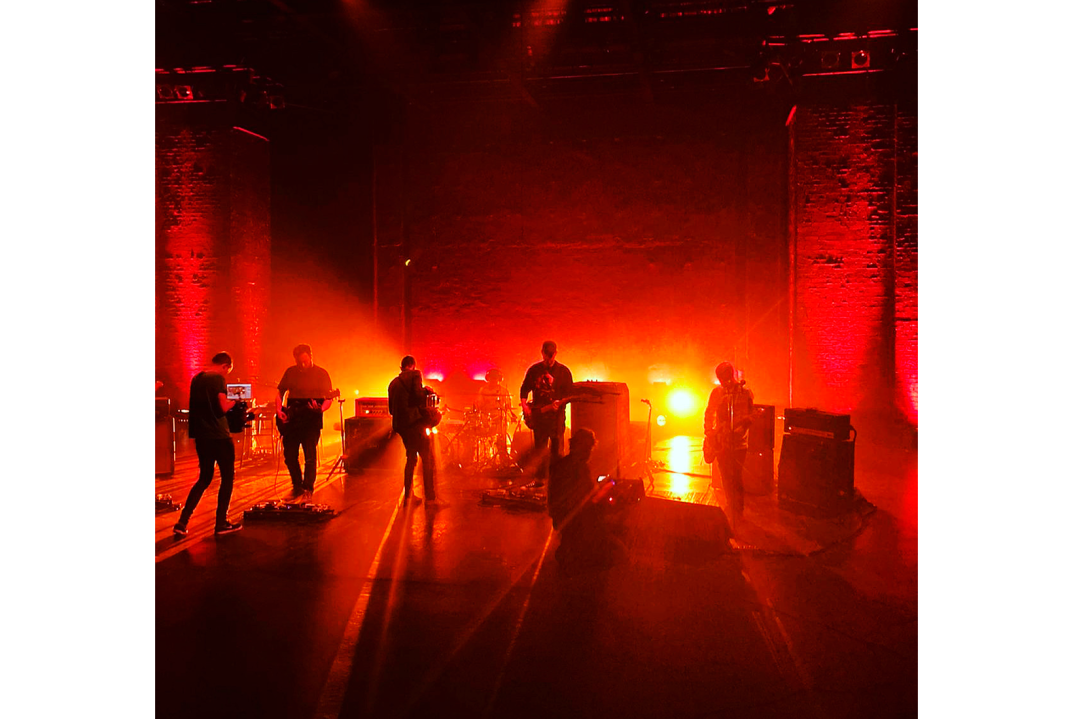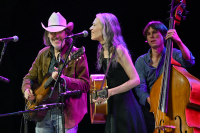You very possibly know the music of the Glaswegian band Mogwai, even if you don’t think you do. You might well have not listened to a note of their ten studio albums, their three live albums, or their four compilations. You may never have seen one of their pulverisingly loud live shows, or heard them on BBC 6 Music, their natural home. But you may well have heard them on TV, either as background music, or on one of their commissioned soundtracks — seven of them now, including the current Sky Atlantic mob series ZeroZeroZero.
It’s hardly surprising that one of their soundtracks was for the French TV show Les Revenants, about people coming back from the dead with ambiguous intentions, since virtually all their music — band albums or soundtracks — sounds as though it were designed to accompany images of people coming back from the dead with ambiguous intentions. The soundtracks tend to tell half the story though, the quiet half. This livestream, in which the band play their new album, As the Love Continues, in full, with a couple of old tracks as ‘encores’, told the other half.
A typical Mogwai track follows a template: it starts quietly; it features repeated chord progressions over which various instruments are layered; it changes a bit; then, several minutes in, Stuart Braithwaite and/or Barry Burns step on their guitar pedals and it gets very loud — their version of what is known in dance music as ‘the drop’. Oh, and sometimes Braithwaite sings. To those unfamiliar with the oeuvre, it all sounds the same. But then most rock groups sound the same: the comforting familiarity of one thing done very well is what keeps people coming back.
Mogwai is prog rock without the widdly-woo solos and the Roger Dean cover art
And, it must be said, Mogwai do their thing very well. There was enough variety in As the Love Continues to keep things bustling along. The single ‘Ritchie Sacramento’ could have been released at any time since 1995, admittedly, but was no less thrillingly turbulent for that. ‘Ceiling Granny’ sounded not unlike Big Country, of guitars-that-sound-like-bagpipes fame, a comparison Mogwai might not delight in, but it was terrific. The big epics were big and epic (the closing track, ‘Like Herod’, from 1997, more or less defines bigness and epicness).
Admittedly, there wasn’t much to look at. During ‘Ceiling Granny’, one Tweeter noted that bassist Dominic Aitchison had moved his right foot from a 35º to a 45º angle: ‘He’s rare enjoying himself and letting the hair doon tonight!’ But that’s not really the point. In the genre known as post-rock in which Mogwai exist — so called because it supposedly moves beyond the constraints of mere rock’n’roll — the purpose of it all is not to dazzle with visual splendour and top entertainment, but to induce what the critic Alexis Petridis described as a mood of ‘Cower Before the Majesty of This Event, Puny Human’.
If it all sounds a little like prog rock, that’s because that’s what it is. It’s prog rock without the widdly-woo solos and the Roger Dean cover art: prog rock reinvented as something austere and forbidding, built on simplicity and sonic accumulation rather than complexity and virtuosity. And you can be sure that Mogwai, unlike Yes, will never subject you to a double album based on a lengthy footnote on page 83 of Autobiography of a Yogi.
The Staves’ performance at the little Lafayette club in London was rather less of a steamroller. Over the past few years the three Staveley-Taylor sisters have been gradually moving away from the tasteful acoustic folk-pop of their early records to something no less tasteful, but pleasingly dynamic. Their new album, Good Woman, is a lush and gorgeous piece of soft rock — they’re soundtracking yachts rather than coracles these days — and the contrast between the perfection of their harmonies and the satisfying propulsion of their band was glorious.
There were oddities, though. For some reason they appeared to be treating a little livestreamed gig from a club as if it were a stadium show, retreating to a ‘B stage’ — in this case, Lafayette’s bar — for an acoustic section. It’s not as if — as a stadium B stage does — it moved them any closer to the furthest-flung crowd; it just meant we had to endure some awkward bantz as they walked through the corridors of the venue.
It was interesting, though, to hear old songs contrast with the new, and the growing sophistication of their writing. ‘Mexico’, from 2012, was pretty much about how you can cheer yourself up by going on holiday (a concept as fantastical right now as a double album based on a lengthy footnote of page 83 of Autobiography of a Yogi). The tracks from Good Woman were subtle and nuanced — the album is, more or less, about the meaning of womanhood — and they gain power from being sung by sisters.
Quietly, over nearly a decade, the Staves have become one of our best bands. They’re very different from Mogwai, but they deserve a career just as long, and to spread their tentacles just as far.







Comments